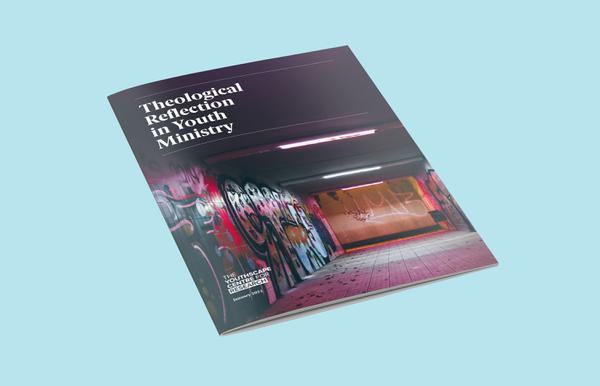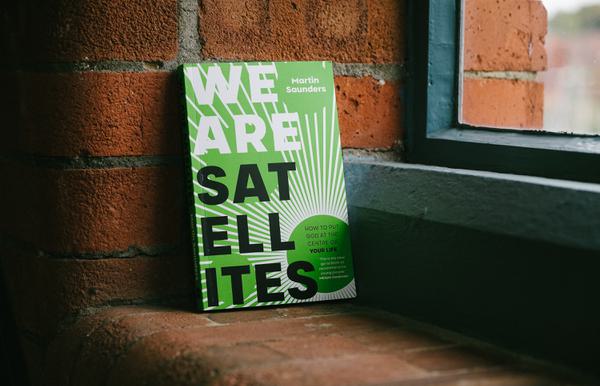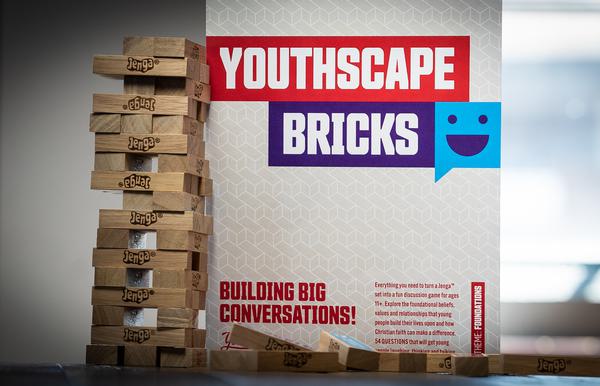Why is it we often fill up church youth work with frantic activity and content, instead of just being and ministering to young people?
At the beginning of my twenties, I used to think I had refined music taste. I listened to out of the way jazz albums. In the intermediate years, I have come to terms with a fundamental truth about myself: when it comes to music, I am a cheesy old fart. I like a bit of kitsch. And I used to live in Vienna. So, of course, it goes without saying that Billy Joel’s Vienna Waits for You is part of my regular playlists.
Joel sings a song of encouragement and rebuke to a younger person – perhaps someone he knows, perhaps a younger version of himself.
Slow down, you crazy child
You’re so ambitious for a juvenile
but then if you’re so smart
tell me why are you so afraid
Slow down, Joel swoons to his imaginary leader. What is it that is driving you? What is it that is making you work and work until you drop? When will you realise: Vienna (which in the song is a cipher for laid-back living) waits for you. “Slow down you crazy child // Take the phone off the hook and disappear for a while // It's alright, you can afford to lose a day or two” (amusingly there is now also a version of this song in Viennese dialect…)
What is it that is driving you?
I think that’s an interesting question for church ministry in general, and youth work in particular. In a recent tweet, I asked this question: “Why is it we often fill up church youth work with frantic activity and content, instead of just being and ministering?” (actually I wrote ‘minsitering’, because it is an eternal law of the universe that your most popular tweets must contain typos and when are we getting an edit button, Twitter?). The number of replies and retweets and likes I got seem to suggest that I hit something that many people are feeling.
Much of church youth work is still oriented around us as youth workers putting a load of energy into producing programmes, and fun and games for young people. We need to make youth group attractive and entertaining – otherwise people might not come. The theologian Andrew Root refers to this posture as being the ‘Chief Minister of Fun’. And it is exhausting.
I have spoken to youth leaders who feel the responsibility for young people’s discipleship not as a holy responsibility, but as a weight which is crushing them, as if all of this young person’s future weighs on them, the youth worker. And this weight often doesn’t just come from the youth worker themselves. It is often communicated, said or unsaid, from the youth worker’s church (especially if there’s a salary at play – what are paying you for if not to get results?)
Why is it we often fill up church youth work with frantic activity & content, instead of just being & minsitering?
— David Bunce (@davidbunce) August 31, 2021
I wonder if we have a subconscious fear that God might not turn up otherwise.
Simply being present is a huge challenge for our chronically anxious church.
The weight of youth work
All around me, I see churches and organisations rushing out of Covid into trying to recreate ‘normal’, trying to bring new projects after over a year of life being on hold. The energy is up, up, up. Now is the time to act! And yet I know friends in these same churches and organisations, I know they are often running on fumes – if not empty. Warning signs are on the dashboard – volunteers are dropping out, conflicts are bubbling away unaddressed, emotional energy is at a low level.
Maybe you are reading this and you can feel the effects of this hectic life. The lack of joy as you try and come up with yet another fun-filled evening. The tension and anxiety in your shoulders or in your stomach or in your racing brain. The emotional numbness with which you hear that yet another volunteer has moved on to do something else.
What is it that is driving us?
Too bad, but it's the life you lead
You're so ahead of yourself that you forgot what you need
Why is it so hard for us as a church to embrace a theology and practice of simply being instead of doing?
I wonder if it is the bubbling fear that somehow God is not going to turn up. And so we need to do something (after all, this is the next generation of the church we are talking about, right?) and so we appoint ourselves as God’s representative, the one who can be guaranteed to turn up even if we’re not entirely sure that God will.
Now: of course we are not going to say that to ourselves. Of course we believe God is going to turn up. That’s clear in our theology. But. Is that actually functionally true for you in your life? “If you’re so smart – why are you so afraid?”
Ouch.
Are you on some level compensating for this fear? Am I? By trying to be super entertaining. By taking all the responsibility of a young person’s discipleship on your own shoulders. By racing out of a global pandemic with new ideas and new projects before you have even had time to rest and mourn and breathe in.

Learning to listen
I’ll finish with a small story. I’ve recently moved and begun co-leading a new youth group in the new church I pastor. The pattern of this youth group had been based on lots of hands-on activities, lots of practical teaching. It was good, and there was a rich history of faithful youth work. But I had the sense that we needed to help the young people to engage with their own spirituality and learn to hear God for themselves. We needed to reduce the amount of stuff we were doing for them – teaching, providing them answers – and create space for them to discover God when we removed some scaffolding.
So I suggested we did one evening that, instead of a normal pattern of teaching, was mainly based around silence and lectio divina – reading the Bible slowly and listening for God’s voice. My co-leader was initially sceptical, but I can be convincing/sometimes don’t shut up, and she agreed to do it.
"To get to that point of God blessing us, I had to first face the void of my chronic anxiety, my own need to do instead of to simply be present in that holy moment together with the young people."
In all honesty: I was terrified. Terrified that, although I had argued for doing this, maybe it wouldn’t work. Maybe the teenagers would get nothing from it. Maybe they would decide that I was a boring new leader and go and find something else. Maybe it would be a fluke and I’d have egg on my face. The only thing that stopped me chickening out was a) I was already publicly committed to it and so couldn’t really back out of it and b) I had a crazy sense it was the obedient thing to do.
God did turn up. I was surprised by the way that the teenagers interacted with God’s word, blessed by some of the things that they shared afterwards, encouraged that some of them kept doing it for many weeks to come.
But to get to that point of God blessing us, I had to first face the void of my chronic anxiety, my own need to do instead of to simply be present in that holy moment together with the young people.
Slow down you crazy child
Take the phone off the hook and disappear for a while
It's alright, you can afford to lose a day or two (oooh)
When will you realize... Vienna waits for you?
Why is it we often fill up church youth work with frantic activity and content, instead of just being and ministering? What is driving us? What would it look like if we paid attention to our chronic anxiety, faced the void – and stepped out in faith to be present with young people, trusting that God will indeed show up?
David is a British pastor ministering in a church in Bad Ischl, Austria. He also leads the Austrian Baptist Union Youth and Children's Department, where he seeks to help equip volunteers and churches to do great youth and children's work. He lives in the middle of the Alps with his family and an ever growing collection of balcony plants.










